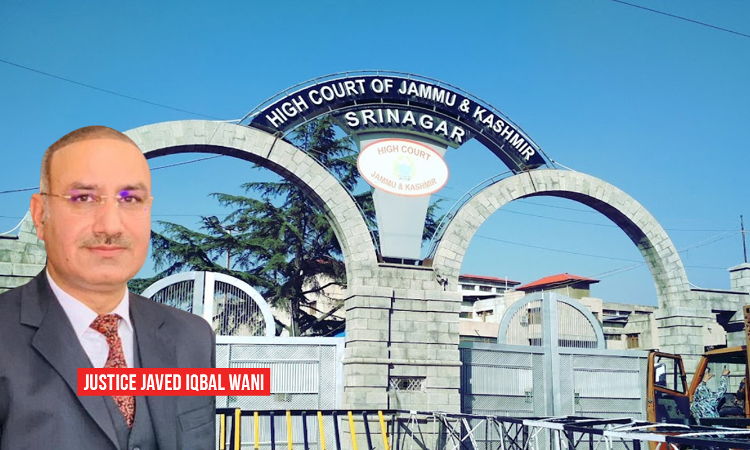- Home
- /
- High Courts
- /
- High Court of J & K and Ladakh
- /
- Fiction Of Subsisting Contract...
Fiction Of Subsisting Contract Between Advocate & Deceased Client Only For Limited Purpose Of Informing Court About Client's Death: J&K High Court
LIVELAW NEWS NETWORK
6 May 2025 6:15 PM IST
Reinforcing a critical procedural safeguard, the High Court of Jammu and Kashmir and Ladakh at Srinagar has held that Order XXII Rule 10A CPC introduces a legal fiction deeming the contract between an advocate and a deceased party as subsisting but only for the limited and essential purpose of requiring the advocate to inform the Court about the death of the party they represent.This...
Reinforcing a critical procedural safeguard, the High Court of Jammu and Kashmir and Ladakh at Srinagar has held that Order XXII Rule 10A CPC introduces a legal fiction deeming the contract between an advocate and a deceased party as subsisting but only for the limited and essential purpose of requiring the advocate to inform the Court about the death of the party they represent.
This legal construct, Justice Javed Iqbal Wani explained, is aimed at preventing procedural ambush, ensuring the opposite party is not caught unawares during hearing.
Allowing an application for substitution of deceased respondents' legal heirs despite significant delay on the strength of equitable considerations and statutory duties embedded in the CPC the court observed,
“.. the need for diligence, qua the counsel for the opposite party commences from the date of such knowledge, acquired by the opposite party about the death of the deceased party and if the such opposite party pleads ignorance even after the court notifies the said party about the death of the deceased party, that may be an indication of negligence or want of diligence”
In the instant case the petitioner Mst. Sara, filed an application on 16.05.2023 seeking substitution of legal representatives of two respondents (respondents 4 and 5), who had passed away in 2019 and 2021 respectively.
Respondents opposed the application, arguing that it was time-barred and filed beyond the statutory period. They further contended that the petition stood abated with the death of the respondents and could not be revived after such a prolonged delay.
However, the petitioner submitted that she came to know about the deaths only recently and acted promptly to file the application for substitution.
Importantly, the Court delved into Order XXII Rule 10A CPC, which casts a duty on an advocate to inform the Court when the party they represent dies during the proceedings.
Citing the Supreme Court's judgment in Perumon Bhagvathy Devaswom v. Bhargavi Amma (2008) 8 SCC 321, Justice Wani observed,
"The legislative intent of casting a burden on an advocate of a party to give intimation of the death of a party represented by him and for this limited purpose to introduce a deeming fiction of the contract subsisting between the said advocate and the deceased party, is to ensure that the other party may not be taken unawares at the time of hearing by springing surprise that the defendant/respondent is dead and that the suit/appeal has abated."
The Court further noted that this fictional continuity of contract is not intended to revive the full contractual relationship between a deceased litigant and his counsel but exists solely to impose the statutory obligation of notifying the death.
In this case, despite the deaths occurring in 2019 and 2021, the respondents' counsel failed to discharge this duty, and only sought to place a pedigree table on record through a different application filed in March 2023 without mentioning the deaths.
The Court observed that although the advocate's failure to inform the Court does not relieve the petitioner from her own responsibility to seek substitution in time, the overall circumstances showed no intent to abuse the process, and the delay was due to lack of knowledge, not negligence.
In alignment with the principle that procedural law is the handmaid of justice, the Court opted for a liberal approach. It allowed the substitution of legal heirs and directed the petitioner to file a fresh memo of parties within two weeks.
Case Title: Mst Sara Vs Financial Commissioner Revenue JK Srinagar
Citation: 2025 LiveLaw (JKL) 176



